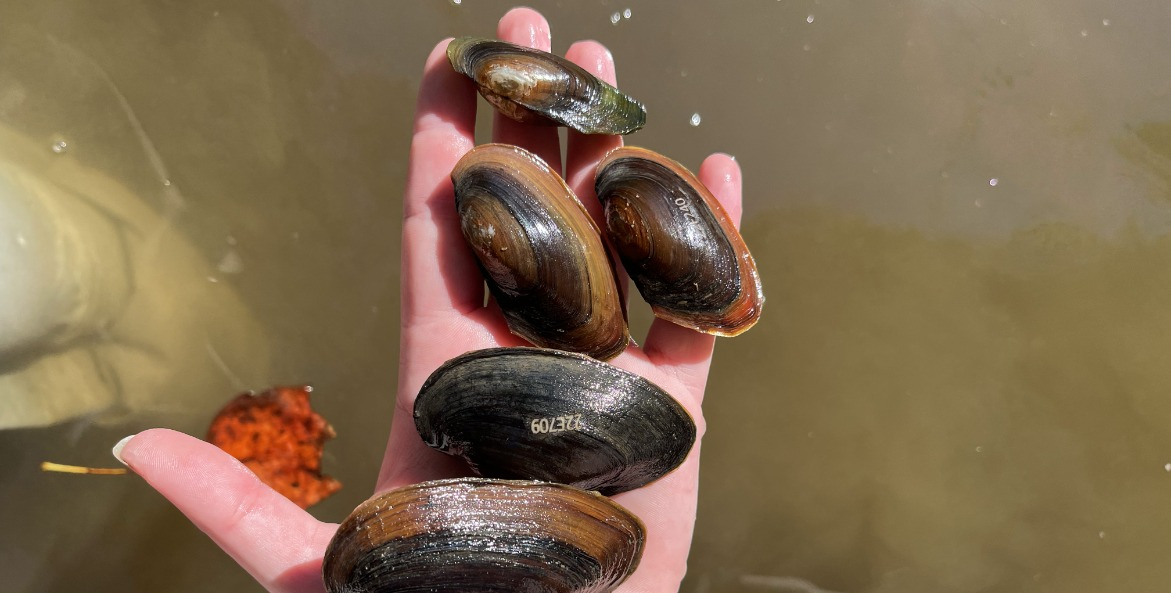Winter 2024
New Map of Mussel Hotspots Created
In October, the Virginia Department of Conservation and Recreation (DCR) released a new map that identifies potential habitats of the native imperiled freshwater mussels, part of a project funded by a grant to the Chesapeake Bay Foundation.
Virginians can check the map to see which species of mussels might be in their local river or stream. Natural resource agencies and organizations can use it to prioritize restoration work where it could help save these at-risk mollusks.
Biodiversity data specialists at the Virginia Natural Heritage Program at DCR created a mussel richness map of hotspots where planting native trees and plants along streams and implementing agricultural best management practices could have the biggest benefit for clean water and mussel habitat. Using this new map, existing forests that are important for the quality of water associated with significant mussel diversity may be targeted for conservation.
CBF Oyster Gardener Program Doubles
Virginia's oyster gardening season hosted a record-breaking number of participants this year. Volunteers along with CBF planted over 110,000 adult oysters that had grown from infancy into maturity under the watchful eyes of oyster foster parents. These planted oysters will go on to filter millions of gallons of water daily on sanctuary reefs in the Chesapeake Bay watershed.
In total, this year's program now hosts 627 oyster gardeners who are fostering hundreds of thousands of baby oysters. One major development this past season was the doubling of the public gardening program, with 64 families and organizations who don't have access to water growing oysters at public marinas and docks that partner with the program.
CBF Champions Outdoor Learning and Living Shorelines
The legislative session in Virginia kicks off in January with environmental education funding, wetlands defense, and scientific deep dives into fishery issues among the environmental priorities for the Chesapeake Bay Foundation.
CBF will advocate for increased investment in outdoor learning experiences for Virginia students, putting the Commonwealth closer on par to other states when it comes to environmental education funding.
In recent years, communities from the Eastern Shore to the Shenandoah Valley have felt the effects of more extreme weather. To bolster Virginia's resilience toward shoreline erosion and other impacts of climate change, CBF supports increased investment in living shorelines and a dedicated living shoreline fund.
Support for fishery-related studies including an oyster stock assessment and a menhaden study is needed to understand the struggles of these iconic species that support valuable fisheries in Virgina.
In the wake of the Supreme Court rolling back federal protections for wetlands, CBF supports creating a workgroup to develop strategies for protecting wetlands and developing plans for wetlands restoration and creation.
To bolster Virginia's resiliency against extreme weather and other impacts of climate change, CBF is advocating for increased investment in living shorelines as well as dedicated funding for resiliency projects that can be used by communities to strengthen their protection against climate change threats. And to better protect Virginia's natural resources, CBF supports responsible solar project siting as well as the creation of a workgroup to develop strategies for wetland protection, restoration, and creation.
—Chris Moore
Virginia Executive Director
Chesapeake Bay Foundation



